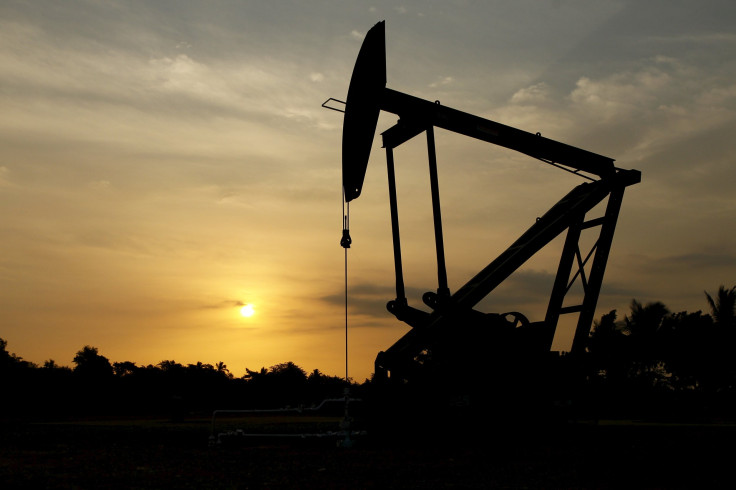BP Sees Oil Prices Rising To $60 A Barrel In 2017, But Tough Cuts In US Production Needed First

BP Plc told investors Tuesday it anticipates oil prices will reach $60 a barrel in 2017, an outlook other energy analysts say they share. Crude prices are expected to rise as U.S. production declines and BP and other oil majors slash spending plans, although a full rebound to last year’s prices is likely off the table, they say.
Global oil prices have slumped sharply in the last 16 months, spurred by a glut of crude supplies and tepid demand from sluggish economies. Brent crude, the international benchmark, dropped to around $50 a barrel in the third quarter this year -- roughly half its level during the same period in 2014, and its lowest level since the financial crisis. Brent crude fell by about 2 percent Tuesday to $46.63 a barrel.
Citing low oil prices, BP said its third-quarter earnings nearly halved compared with a year earlier. The British oil giant said replacement cost profit, a number akin to U.S. net income, fell to $1.23 billion in the last quarter, compared with $2.39 billion in profits in the third quarter of 2014. Brent oil prices averaged $61.9 a barrel in the previous quarter and $101.9 a barrel a year earlier, the company said.
Still, BP said it expects to balance its cash flow by 2017 thanks to $6 billion in spending cuts and an oil price of $60 a barrel.
“Last year, we acted decisively to reset BP for a sustained period of lower oil prices and the results are coming through well,” CEO Bob Dudley said in a statement Tuesday. “We are now in action to rebalance our financial framework in this new price environment.”
To reach $60-a-barrel oil, U.S. production must continue to slide, said Jay Hatfield, president of Infrastructure Capital Advisors in New York.
U.S. crude output has dropped to about 9 million barrels a day from a 43-year peak of 9.6 million barrels a day in April, the Energy Information Administration recently estimated.
American producers were hit particularly hard by the price bust because of the higher costs of their unconventional operations, including hydraulic fracturing (fracking). Rig counts have dropped and thousands of workers have lost jobs as companies struggle to finance new production. Meanwhile, Saudi Arabia and other OPEC members are boosting production and clawing back market share.
Hatfield said major spending cuts by global oil-and-gas giants also could help push crude prices to $60-a-barrel territory within two years. Along with BP’s announced cuts, Royal Dutch Shell Plc this summer said it would slash its 2015 capital spending by $7 billion, or 20 percent from 2014, and cut 6,500 jobs. ExxonMobil said would pare this year’s expenditures by $4.5 billion, or 12 percent. That pullback could result in lower production come 2017, further easing the global crude glut, Hatfield said.
At the same time, global demand could rise by 3 to 4 percent beyond next year as economics strengthen and consumers take advantage of plunging gasoline prices, according to Infrastructure Capital Advisors’ forecast.
“Our views are consistent with BP. We think we’ll be at $60 to $70 a barrel in 2017,” Hatfield said. “Forty to 50 dollars is not really economic for a lot of drilling projects. We don’t look at that [range] as being long-term sustainable.”
The outlook is less aggressive than others have suggested. Shell CEO Ben van Beurden said in July that he sees an eventual floor for oil prices at $70 a barrel, with prices rising as high as $90 as demand swells, although he did not predict when that would occur. Analysts with Goldman Sachs Group Inc. said prices could potentially plunge to $20 a barrel, in a worst-case scenario, as storage tanks reach capacity.
Wherever prices land, they’re not likely to move much in the coming months. Even as U.S. production drops, the global supply glut will likely persist in 2016 as Iraq and Iran accelerate output and demand growth dips next year, the International Energy Administration said in its latest monthly oil market report.
“The market may be off balance for a while longer,” the Paris-based watchdog group said this month.
© Copyright IBTimes 2024. All rights reserved.



















